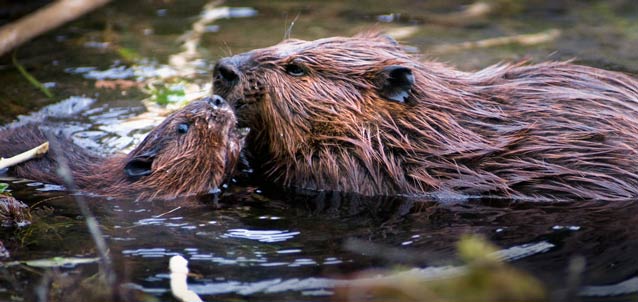Briar Chapel, the neighborhood I live in, brands itself as a “sanctuary” on its website, but for whom? Surely not for the beavers who reside in the Pokeberry Creek on the property. The HOA had intentions to kill the beavers because of the flooding and damage their dams have caused to footpaths and bridges in the neighborhood. After a huge public outcry, the motion to eradicate the animals has been temporarily delayed and other options will be explored, but why was it even discussed in the first place?
Although beavers do cause property damage, we are infringing upon their homes, not the other way around. Beavers are very beneficial creatures. There is evidence that beaver dams prevent excess nitrogen and other toxins from polluting water. They also slow the water evaporation process and have the ability to replenish freshwater wetlands. These wetlands then become habitats for other species that couldn’t reside there before. Scientists have even proven that beavers are a keystone species in America, meaning that they play a crucial role in supporting biodiversity, including 43 percent of our endangered species.
The Department of Agriculture’s Wildlife services program spends taxpayers’ money to kill over 27,000 beavers a year. I am not trying to claim that beavers aren’t a nuisance to us, but it is not their fault that they are in the way of our developments and our rapid expansion as a population. I also understand that trapping and moving beavers is much more expensive than killing them, but as a citizen, I would be happy to pay to keep some beavers alive by relocating them to places where they can do some good, or paying to install flow devices, which control the flooding caused by beavers. They are ecologically valuable animals and they don’t deserve to die.
We really should appreciate the beavers more, as they are second to only us in their ability to change their environments. As humans, we are constantly trying to change the world around us to fit our needs by building things pretty much where we please, and yet we are not killed for it. The beavers are.
– By Ava Johnson


